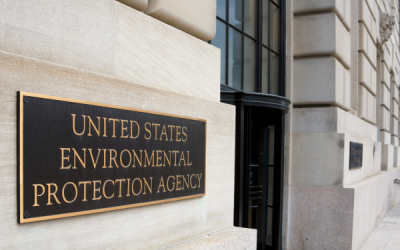The U.S. Food and Drug Administration’s “generally recognized as safe” (GRAS) designation is under fire. And this time, it’s not just the Food Babe who’s taking GRAS to task.
Expert opinions: Medical and food law experts Pieter A. Cohen, M.D. and Emily M. Broad Leib, J.D., authored an article in the New England Journal of Medicine that raised a red flag on the GRAS process. These experts—tied to the Cambridge Health Alliance and Harvard—asked the FDA to take additional steps to make sure new food additives are safe.
Their concern dates back to 2022 liver injuries caused by tara flour, a GRAS ingredient that was used in a substitute for ground beef.
FDA feedback: A spokesperson for the FDA says the agency doesn’t have authority to make the changes the authors asked for. They pointed to the Federal Food, Drug, and Cosmetic Act as where the buck stops. They also noted that GRAS substances must have publicly available safety data.
Legislator leans in: Representative Rosa DeLauro of Connecticut is trying to get the FDA to close the GRAS loophole with the Toxic Free Food Act. Her act would require chemical food additives to go through an FDA review of specific requirements before making it to market.
Soundbite: “The FDA currently reviews GRAS conclusions under the voluntary GRAS notification program. The FDA encourages industry to engage with our GRAS notification program in which FDA experts evaluate the publicly available safety data to see if the use of the ingredient raises any regulatory or safety questions.” — FDA spokesperson
Short Corn Packs a Punch
Dynamite comes in small packages—which can be true with new seed technology. What’s...
Congress to EPA: What’s Your BEEF with Meat Packers?
The Environmental Protection Agency (EPA) is considering new regulations that take aim at meat and poultry processors.
And some members of Congress have a BEEF with the EPA’s proposals.
The proposed rules: In late January, the EPA released the details of its proposed “Clean Water Effluent Limitations Guidelines and Standards for the Meat and Poultry Products Point source category.”
Huh?
Basically, the EPA formally published its proposals to combat wastewater contaminants that come from slaughterhouses.
Okay… that makes more sense.
At the heart of the rules proposal is a concern from environmental groups about nitrogen and phosphorus pollutants that originate from slaughterhouses. In some cases, the wastewater goes directly into waterways. In other cases, the water goes to municipal wastewater treatment facilities.
But not everyone is on board with the EPA’s suggestions…
Congress responds: Last week, two U.S. representatives—Eric Burlison (MO) and Ron Estes (KS)—pushed back against the EPA and introduced the “Banning EPA’s Encroachment of Facilities (BEEF) Act.” If passed and signed by President Biden, the law would prohibit the EPA from finalizing, implementing, or enforcing the rule.
According to the lawmakers, the proposed rules place undue burden on small processors—costs that can be absorbed by larger companies.
Soundbite: “The… proposed regulation isn’t just an attack on family-run small businesses, it’s an attack on rural communities,” said Burlison. “These meat and poultry processors are the lifeblood of our communities. The BEEF Act… lets these hardworking Americans do what they do best, produce safe, affordable food for our families.”
University of Illinois Makes Big Mooves in Milk Production
Pump it up: Scientists led by Matt Wheeler at the University of Illinois Urbana-Champaign are...




